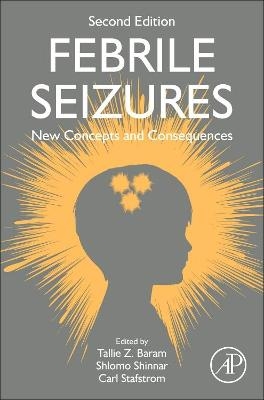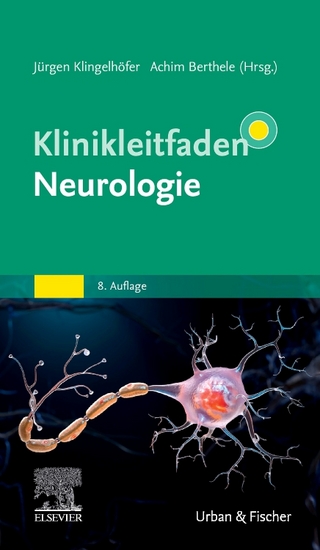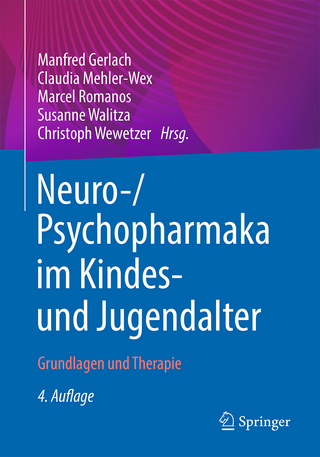
Febrile Seizures
Academic Press Inc (Verlag)
978-0-323-89932-1 (ISBN)
The 20 years since the publication of this first edition have witnessed an explosion of new information about febrile seizures, meriting this new edition. Key advances have been made in the genetics and neurobiological underpinnings of febrile seizures and especially the very long fever-related seizures called febrile status epilepticus. The role of neuroinflammatory factors in the emergence of these seizures and their consequences, the demonstration of unique clinical and neuroradiological aspects of febrile status epilepticus, and the prospect of predictive (bio)markers to identify and characterize cognitive and epilepsy outcomes are exciting and important. In this edition, the authors and editors tackle these developments in chapters addressing the questions of parents, physicians, allied health care professionals and basic and translational scientists.
Tallie Z. Baram, MD, PhD is a Professor of Pediatrics, Anatomy/Neurobiology, Neurology and Physiology/Biophysics at the University of California-Irvine, and the Danette Shepard Professor of Neurological Sciences. Baram is a child neurologist and developmental neuroscientist and who has been focusing her efforts on programming the developing brain as a result of early-life experiences. Baram’s group has studied this broad topic in two contexts: a. how early-life experiences including stress and maternal care influence resilience and vulnerability to cognitive and emotional d3isorders; b. how early life seizures, especially those associated with fever, can convert a normal brain into an epileptic one. Baram’s discoveries have been translational, providing the foundation of an FDA-approved therapy and of novel clinical imaging approaches. Baram’s research contributions have been recognized by prestigious awards including the NIH NINDS Javits Merit Award, AES Basic Science Research Award, and the CNS Sachs Award, and she has chaired the NIH Developmental Brain Disorders study section. Dr. Shlomo Shinnar is a neurologist, pediatrician and epidemiologist at the Albert Einstein College of Medicine. His expertise focuses on comprehensive epilepsy management, child neurology and epilepsy with a focus on long term studies the prognosis of childhood seizures disorders. He is also an experienced clinical trialist and is the co-director of the Einstein NeuroNEXT cener of Excellence for Clinical Trials in Neurology.Dr. Shinnar conducts research on a variety of topics relating to childhood seizures, including when to initiate and discontinue antiepileptic drug therapy, prognosis following a first seizure, and prognosis following discontinuation of medications in children with seizures. He is also interested in the comorbidities of epilepsy and its impact on children and families. He current studies focus on status epilepticus, a life-threatening condition of persistent continuous and unremitting brain seizure lasting longer than 30 minutes. He is the recipient of the prestigious Research Recognition Award of the American Epilepsy Society and the CURE research award. His continuing research on the Consequences of Prolonged Febrile Seizures in Children (FEBSTAT) study was recently recognized with the prestigious Javits award by the NINDS. Carl E. Stafstrom, M.D., Ph.D., is the Lederer Endowed Chair of Pediatric Epilepsy, and serves as the Director of Pediatric Neurology and Director of the John M. Freeman Pediatric Epilepsy Center. Dr. Stafstrom received his medical degree from the University of Washington School of Medicine in Seattle, with residencies at the University of Washington Medical Center and Tufts New England Medical Center, as well as fellowships at Harvard for neurology research and Boston Children’s Hospital in clinical neurophysiology, electroencephalography, and epilepsy. Dr. Stafstrom previously served as Professor of Neurology and Pediatrics at the University of Wisconsin-Madison School of Medicine and Public Health and Chief of Pediatric Neurology at American Family Children’s Hospital at UW Madison.
1. Incidence and prevalence of febrile seizures 2. Who gets recurrent febrile seizures (also complex) 3. Outcomes of febrile seizures: cognitive and epileptogenesis: B. Genetic and Acquired Syndromes Associated with Febrile Seizures 4. The genetic landscape of febrile seizures and GEFS+ 5. SCN1A and Dravet syndrome 6. Other channel syndromes 7. FIRES and related syndromes C. Febrile Status Epilepticus 8. Epidemiology of FSE 9. Neuroimmune aspects of FSE 10. FSE and TLE 11. FSE and TLE- evolving therapeutic and surgical landscape 12. Cognitive outcome of FSE D. The Neurobiology of FS and FSE: experimental approaches 13. Why do febrile seizures involve the developing brain? 14. Cytokines in FS rat models 15. FS and FSE generation in rats and mice E. The Neurobiology of FSE-induced epilepsy and cognitive deficits: Experimental approaches 16. The pathogenesis of FSE-induced epilepsy: Neuroinflammation and Epigenetics 17. MicroRNAs and Epigenetic processes in FSE-provoked epilepsy 18. HCN channels in human and rodent Epileptogenesis induced by FSE 19. Cognitive problems following eFSE 20. Predicting TLE-like epilepsy – the role of MRI: F. Clinical and Translational Implications of FSE 21. MRI for assessing the impact of FSE and predicting outcomes 22. EEG for assessing the impact of FSE and predicting outcome G. Management of febrile seizures and FSE- past, present and futures 23. Evaluation and Practical Management approaches to simple and complex febrile seizures 24. What do we tell parents of a child with simple or complex febrile seizures? 25. The future of FS, FSE and their epileptogenic and cognitive outcomes
| Erscheinungsdatum | 03.10.2022 |
|---|---|
| Verlagsort | Oxford |
| Sprache | englisch |
| Maße | 152 x 229 mm |
| Gewicht | 720 g |
| Themenwelt | Medizin / Pharmazie ► Medizinische Fachgebiete ► Neurologie |
| Medizin / Pharmazie ► Medizinische Fachgebiete ► Pädiatrie | |
| Naturwissenschaften ► Biologie ► Humanbiologie | |
| Naturwissenschaften ► Biologie ► Zoologie | |
| ISBN-10 | 0-323-89932-3 / 0323899323 |
| ISBN-13 | 978-0-323-89932-1 / 9780323899321 |
| Zustand | Neuware |
| Informationen gemäß Produktsicherheitsverordnung (GPSR) | |
| Haben Sie eine Frage zum Produkt? |
aus dem Bereich


